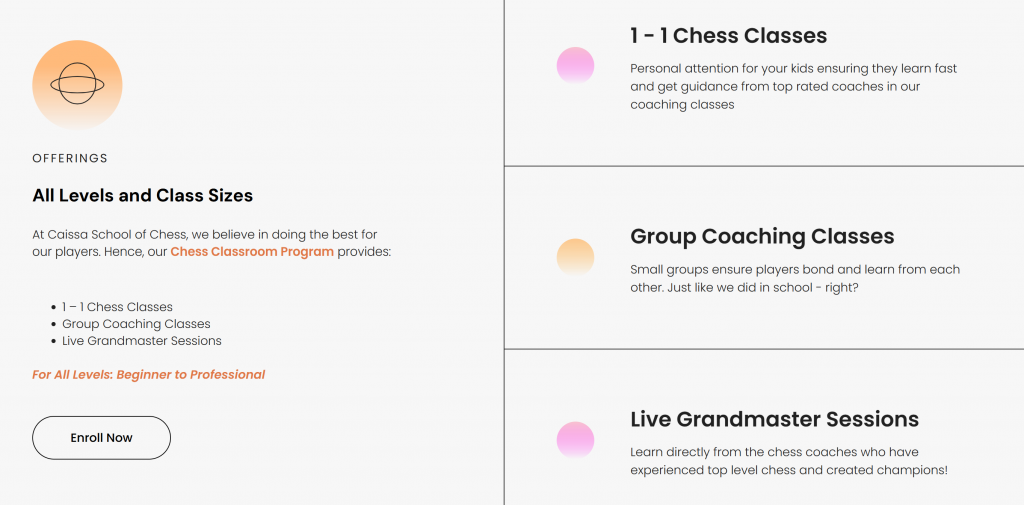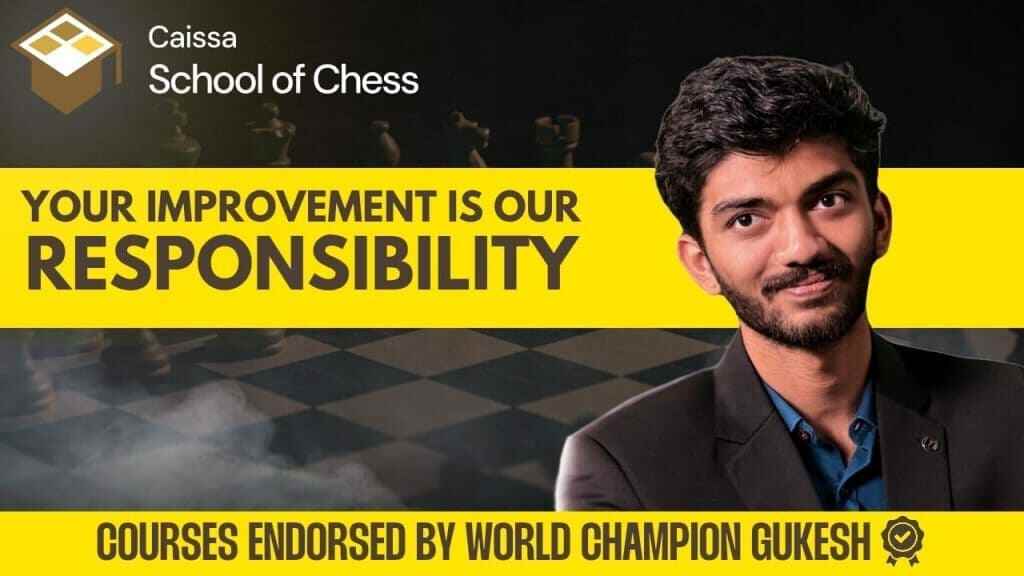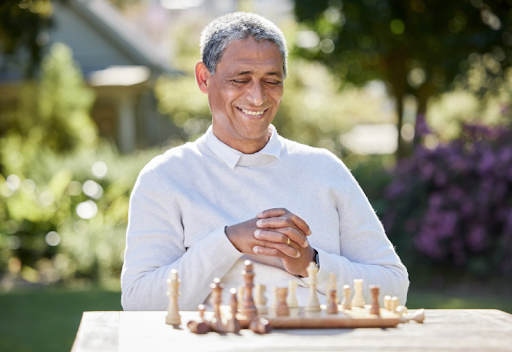Climbing to a 2000 ELO rating in chess is no small feat. It’s like mastering the art of baking – balancing ingredients (study, practice, mindset) and ensuring the right technique to reach perfection. For many players stuck in the 1500 – 2000 range, this journey feels like a plateau. However, with clear goals, proper analysis, and the right mindset, that 2000 milestone can be within reach.
Understanding the Challenge
Achieving a 2000 ELO rating means mastering the game beyond basic tactics and strategies. Many players find themselves stuck between the 1500 and 2000 range, not because they lack skill but because they need a more focused approach to improvement.
- What are the Struggles Between 1500 and 2000 ELO Chess Players?
As players progress beyond 1500, they face stronger competition, and the sheer volume of chess information – openings, tactics, strategies – can become overwhelming. This stage requires filtering out unnecessary distractions and focusing on areas where you can make the most improvement.
- How to Deal with Increased Competition and Information Overload?
With a vast number of chess resources available, many players often get confused about what to focus on. It’s crucial to balance learning and practice while avoiding “analysis paralysis.” Progressing from 1500 to 2000 requires mastering key concepts while staying adaptable.
It is a challenging but achievable goal, requiring more than just familiarity with openings and basic strategies. Players at this level often struggle with information overload and face increasingly tougher opponents. The key to breaking through this plateau is focusing on targeted improvement areas, refining decision-making, and consistently analyzing games.
Setting and Achieving Goals
Reaching a 2000 ELO rating starts with breaking down the journey into manageable steps. Instead of focusing solely on 2000, set incremental goals that reflect steady progress.
- Start with Ambitious, Yet Attainable Targets
Ambitious goals can fuel your drive, but it’s important to keep them realistic. For example, if you’re currently at 1500 or 1700, aim to improve by 100-point increments. Setting goals like 1600, 1700 and 1800 helps you stay motivated and see visible improvements along the way.
- Track Your Progress
As you improve your rating, make sure to monitor your growth. The transition from 1700 to 2000 is more than just earning points – it’s about refining your chess fundamentals while mastering advanced strategies. Achieving smaller milestones along the way provides a sense of accomplishment, keeps you motivated, and makes the ultimate goal seem more attainable.
- Continuously Raise the Bar
Once you’ve hit a certain milestone, like 1800, don’t get too comfortable. Continuously challenge yourself by pushing for the next step. Celebrate your progress but maintain a forward-looking approach, always adjusting your targets to ensure continued growth.
Study and Practice Balance
Reaching a 2000 rating requires both study and practice. Too much study without practical application leads to theoretical knowledge without the ability to execute, while too much practice without analysis leads to recurring mistakes.
- Balancing Study, Practice, and Fixing Errors
A balanced weekly schedule is key. One week might focus more on studying tactics, while another might prioritize practicing games. Be flexible, but always ensure that you’re analyzing and learning from your mistakes.
- Focus Areas: Tactics, Openings, Middlegame, and Endgame
To improve, you need to balance your time across all four critical areas:
- Tactics: Regular tactical puzzles sharpen your calculation skills and help you recognize patterns during games.
- Openings: While memorizing lines is important, it’s more vital to understand the underlying principles.
- Middlegame: Focus on improving positional understanding and formulating strategic plans.
- Endgame: Knowing how to convert an advantage into a win through endgame techniques is crucial at higher levels.
- Adjusting Your Focus Based on Needs
Assess your games regularly. If you find yourself losing in the endgame, spend more time studying that area. If your middlegame strategies fall short, focus on improving your positional play.
Analyzing and Fixing Mistakes
One of the most important aspects of improving your chess skills is learning from your mistakes. Analyzing your games, whether you win or lose, helps identify areas for growth.
- Review Every Game
A common mistake many players make is skipping post-game analysis, especially after a win. However, reviewing all your games is crucial to uncover hidden errors, missed tactics, or better alternatives. By dissecting each game, you can pinpoint what worked and what didn’t, giving you the insights needed to refine your strategy.
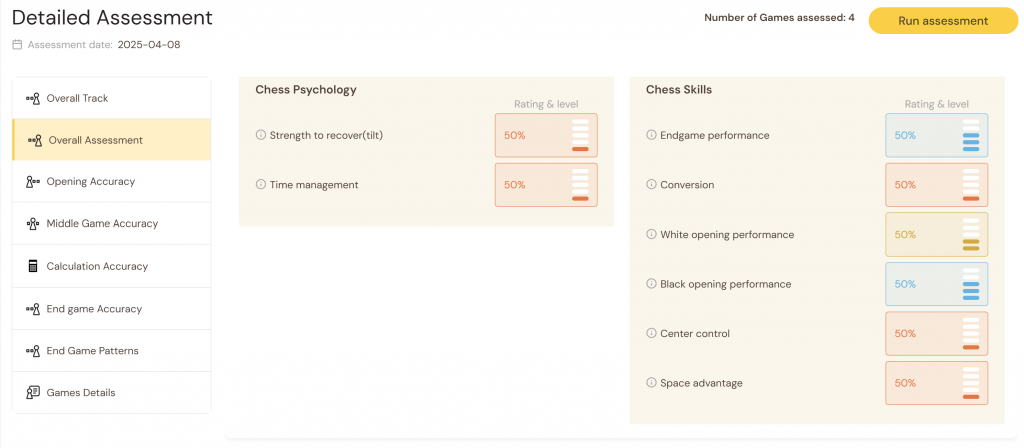
- Focus on Major Blunders and Patterns
Instead of over-analyzing every single move, concentrate on the most significant blunders or recurring mistakes. Do you often lose focus in complex positions? Are you falling into opening traps? Identifying patterns in your errors will help you target specific areas for improvement, allowing you to fix the root causes of your mistakes and progress faster.
Mastering Effective Chess Strategies
A strong strategy is key to reaching a 2000 rating. Incorporating unexpected moves and mastering strategic openings can give you the edge you need to outsmart your opponents.
- Surprise Your Opponents with Uncommon Openings
Using less common openings can be a great tool to disrupt your opponent’s plans. Most players at the 2000 level are well-prepared for traditional lines, so introducing a surprising opening can throw them off balance and create an opportunity for you to take control of the game.
- The Power of the Nimzowitsch Defense
A great example of an unexpected opening is the Nimzowitsch Defense (1. e4 Nc6). This unconventional response challenges standard opening principles and forces your opponent to think creatively from the outset. Mastering the Nimzowitsch can put your opponent into unfamiliar territory early, which increases your chances of gaining a strong positional advantage.
- Maximize Your Advantage in Blitz and Rapid Games
In blitz and rapid formats, surprising openings are especially effective. The time pressure of these games forces opponents to make quick decisions, and less familiar lines can lead them to make hasty mistakes. When used correctly, these unconventional openings can be a powerful tool for scoring points in faster formats, helping you gain critical wins on your way to a 2000 rating.
Maintaining a Strong Mindset
Your mindset is crucial when aiming for a 2000 ELO rating. It’s about staying focused, overcoming challenges, and viewing every game as a learning opportunity.
- Dedication and Persistence
Reaching 2000 ELO requires unwavering dedication and persistence. Chess improvement doesn’t happen overnight – it demands consistent effort, even during slumps or tough losses. Stick to a regular training schedule, work through challenges, and keep your eyes on the long-term goal.
- Master One Time Control
It’s easy to dabble in different formats, but if you’re serious about reaching 2000, focusing on one time control – like classical or rapid – is key. These formats allow deeper thinking and analysis, giving you a better chance to develop strategic skills. Mastering one format will lead to more noticeable improvements.
- Cultivate a Growth-Oriented Attitude
A growth mindset is essential for long-term success in chess. Instead of seeing losses as failures, view them as learning experiences. Analyze every game to understand what went wrong, and celebrate small improvements along the way. This positive, growth-focused approach will keep you motivated and help you reach your goals faster.
Taking Breaks and Preventing Burnout
In the pursuit of a 2000 ELO rating, mental endurance is just as important as chess skills. Balancing focused training with adequate rest helps prevent burnout and keeps your mind sharp.
- Risks of Chess Addiction
Playing too much without taking breaks can lead to burnout, just like in any competitive activity. Chess addiction can result in mental exhaustion, reduced focus, and, eventually, poor performance. Taking time to recharge is key to maintaining both your mental and emotional health.
- Take Breaks After Winning or Losing Streaks
Whether you’ve experienced a tough loss or a winning streak, it’s important to take short breaks. This gives you a chance to reset mentally, avoiding impulsive decisions in your next game and preventing emotional decision-making. Stepping away from the board helps you come back with a clearer, more focused mind.
- The Benefits of Rest
Rest is essential for processing new chess concepts and strategies. By giving your brain time to absorb and solidify information, you improve your long-term performance. Taking breaks – whether for a few days or a week – will ultimately enhance your mental sharpness, creativity, and overall gameplay. Regular rest is as important to your progress as playing and practicing regularly.
The Final Push Toward 2000 ELO
Reaching a 2000 ELO rating in chess is both a challenging and rewarding journey. By setting clear goals, balancing study with practice, analyzing your mistakes, mastering effective strategies, and maintaining a strong mindset, you’ll break through that 2000 barrier. Don’t forget the importance of taking breaks to avoid burnout and always approach the game with a growth-oriented attitude.
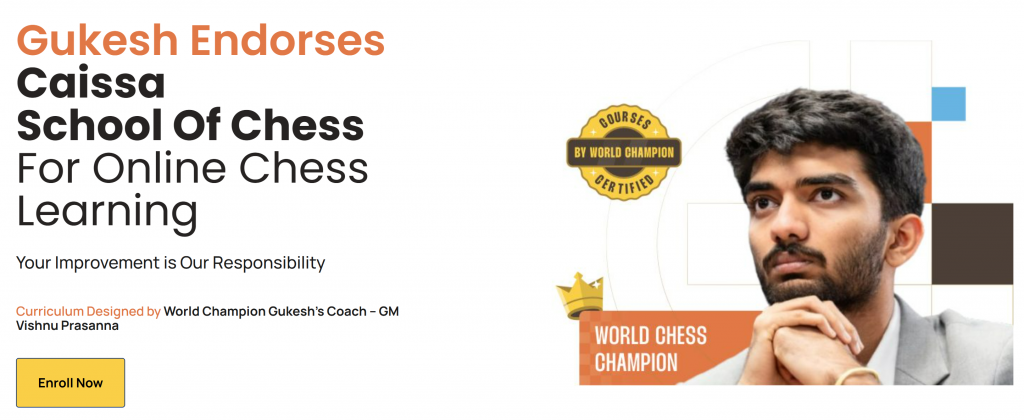
To achieve a balanced approach to study and practice in chess, expert guidance can make all the difference. The personalized training programs offered by Caissa School of Chess are tailored to your unique strengths and weaknesses, helping you balance tactical study, strategic practice, and in-depth game analysis that guide you toward your 2000 ELO goal more efficiently.
